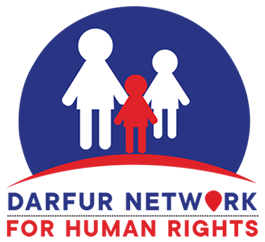Report on NRC Mission to Nertiti, Central Darfur
(Kampala) – On October 6, 2024, a delegation from the Norwegian Refugee Council (NRC) visited the internally displaced persons (IDP) camps in Nertiti, Central Darfur. These camps were established following multiple waves of displacement caused by conflict, particularly in 2003, 2016, and more recently in 2023 and 2024 due to the escalating violence in Sudan.
The mission’s primary objective was to assess the living conditions of IDPs and evaluate the market situation in Nertiti. During their visit, the NRC delegation engaged with community leaders and displaced persons, who raised urgent concerns about the deteriorating situation in the camps.
Key Challenges Raised by Community Leaders:
- Hunger and Malnutrition:
Severe malnutrition is widespread in the camps, especially affecting children and pregnant women. This has led to various health complications, including illness and fatalities. The lack of sufficient food supplies and nutrition programs is exacerbating the crisis, and the rights of these vulnerable groups to adequate food and nutrition are being violated on a daily basis.
2. Unsafe Drinking Water and Insecure Sources:
There is an acute shortage of clean drinking water, which is contributing to the spread of diseases such as dysentery, kidney problems, and skin allergies. The displaced population relies on unsafe and insecure water sources, further endangering their health and violating their right to clean water, a fundamental human right under international law.
3. Shortage of Medical Supplies and Healthcare:
Local health centers are facing a critical shortage of medicines and medical supplies, particularly for malnourished individuals. The absence of vital nutritional supplements, such as nutritional biscuits for children and pregnant women, worsens the health crisis. This situation is a breach of the right to health and medical care, especially for vulnerable groups who rely on humanitarian aid for survival.
4. Lack of Education:
The majority of children in the camps are deprived of access to education due to the absence of facilities and structured support. With no educational framework in place, these children are spending their time in the market, losing valuable learning opportunities. This denial of education undermines their right to quality education and perpetuates a cycle of poverty and vulnerability.
5.Request for Aid and Financial Assistance:
Displaced persons expressed an urgent need for increased relief supplies. Many advocated for cash assistance over traditional in-kind aid, citing that it would provide them with the flexibility to meet their immediate and pressing needs. Cash assistance aligns with the principle of dignity and self-determination, empowering individuals and families to make decisions based on their specific circumstances.
Market Situation:
The NRC delegation noted a significant increase in market prices, further burdening the already vulnerable population. The price of one Med (a local measure of grain) has surged to 12,000 Sudanese pounds, with projections indicating further price hikes in the near future. These steep increases threaten the right to affordable food and basic livelihood resources, making it harder for displaced persons to survive. The inflation is intensifying an already dire situation, and it underscores the need for immediate and comprehensive humanitarian intervention.
DNHR Recommendations:
In response to the urgent needs and challenges identified, the Darfur Network for Human Rights (DNHR) provides the following recommendations, grounded in international humanitarian principles and the fundamental rights of affected persons:
1.Emergency Food and Nutrition Programs:
Humanitarian organizations must prioritize the immediate provision of emergency food aid and nutrition programs. Special attention should be given to vulnerable groups, such as children, pregnant women, and the elderly, who are disproportionately affected by hunger. Establishing sustainable food sources, such as community gardens or partnerships with local farmers, would provide long-term solutions to the hunger crisis and ensure the right to adequate food for all.
2. Access to Clean Drinking Water:
International agencies, in collaboration with local authorities, must urgently address the water crisis by installing boreholes and water purification systems to provide safe drinking water. In parallel, hygiene education programs should be launched to prevent waterborne diseases and promote better health outcomes. Ensuring access to clean water is a fundamental human right, and its provision should be a priority.
3. Healthcare and Medical Supply Aid:
Humanitarian organizations should prioritize the supply of essential medicines and nutritional supplements, particularly for malnourished children and pregnant women. Additionally, the deployment of mobile health clinics or outreach health teams to serve remote areas would ensure that even the most isolated IDPs receive the healthcare they need. This would restore their right to health and basic medical care.
4.Education for Children:
Organizations focused on education should establish temporary schools within the camps and, where possible, offer transportation to nearby schools. Additionally, teacher training programs should be implemented to ensure that children receive basic education despite the difficult circumstances. This will help ensure their right to quality education and prevent the long-term consequences of lost learning opportunities.
5.Financial Assistance and Cash Transfers:
Humanitarian agencies should introduce cash transfer programs or vouchers, providing displaced persons with the flexibility to purchase essential items such as food, medicine, and other necessities. Cash assistance would enable IDPs to prioritize their specific needs while stimulating local markets, thereby benefiting the wider community. This approach aligns with the principle of dignity and empowers individuals to make informed choices based on their circumstances.
The Nertiti camps in Central Darfur face critical challenges, including inadequate food, water, healthcare, and education services. These shortcomings violate fundamental human rights, particularly the rights to adequate food, health, clean water, education, and dignity. The international community must take urgent and coordinated action to address these gaps and uphold the rights and dignity of displaced persons in Sudan.

